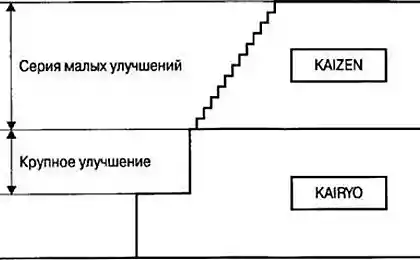680
Methods Kaydzen or the principle of one minute.

"From Monday begin a new life, I will be going to the gym, do yoga, do self-massage, swing the press ..." - each of us periodically sets itself some goals and reach them, transferred to the next month, for a few months to a year . Is it because this is what we want immediately and plans much piled on us a heavy burden, not giving a result made even just a little.
Sometimes we begin to zealously fulfill our plans, but having been occupied, for example, 3 times a week in the gym for a few hours, throwing class for a long time. Why is this happening? Because the load is large because bored, and the habit has not yet developed.
There is a Japanese technique of "kaydzen" which is the principle of "one minute". The principle of this method is that a person is engaged in a specific case for exactly one minute, but every day, and at one and the same time. One minute of time - it is quite small and therefore easily doable for anyone. Laziness does not stand on your way. The same actions that you would not want to perform for half an hour, coming up with excuses or justification, you can easily follow a minute.
Jump on the rope, shake the press, to do exercises for the eyes, practice yoga, read a book in a foreign language - when time is limited to one minute, classes do not seem to you difficult and the contrary, bring joy and satisfaction. But making small steps, you cultivate and achieve great results.
It is important that you win uncertainty in the forces, freed from feelings of guilt and helplessness, experiencing success and victory. Inspired by a sense of success, you will gradually increase in the five-minute minute sessions and so on. Then you approach quietly and half-hour lessons. Progress is!
Kaizen originated in Japan
The word is a compound, and includes the other two - "Kai" (change) and "Zen" (wisdom). The author of the concept of management is Masaaki Imai. He believes that kaizen - a real philosophy that can be applied equally well in business and in personal life.
People of western culture Japanese technique may seem inefficient, as in the West, popular belief that without a lot of effort to not achieve good results. But large-scale programs, consuming a lot of energy, can break the man and were unsuccessful. A principle of "kaydzen" fit all, and can be applied to many areas of life. The Japanese, for example, use a strategy of gradual and continuous improvement in management.
It remains only to determine your needs and start applying techniques "kaydzen" in practice.























